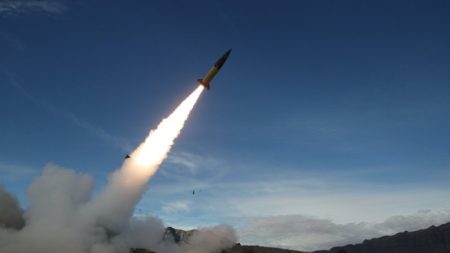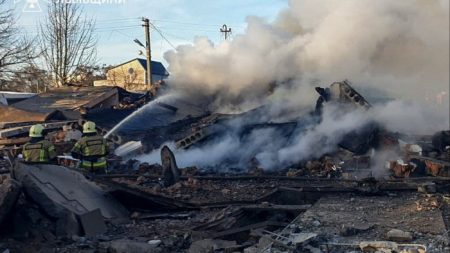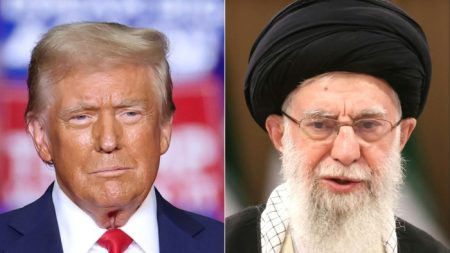Unlock the Editor’s Digest for free
Roula Khalaf, Editor of the FT, selects her favourite stories in this weekly newsletter.
Nearly three dozen people were killed in an air strike on the Jabalia refugee camp on Saturday, as Israel pressed on with a punishing offensive in northern Gaza in the wake of Hamas leader Yahya Sinwar’s killing.
According to health authorities in the Hamas-controlled enclave, 33 people died and dozens were wounded after the Israeli strike on several houses near the Nassar junction in Jabalia.
The fighting in Gaza underscored the difficulty for international mediators in renewing talks for a ceasefire, even after the death on Wednesday of Sinwar, the architect of the October 7 attack that triggered the war.
Benjamin Netanyahu, Israel’s prime minister, said on Thursday that the Israeli offensive would continue until the 101 hostages still held by Hamas were released. He offered the militant group an ultimatum: let the hostages go in exchange for a guarantee of physical security.
The Israel Defense Forces this month launched a renewed air and ground offensive on Jabalia and other parts of north Gaza, targeting what it said were efforts by Hamas to regroup in the area and launch attacks.
Israeli troops encircled the Indonesian Hospital in Beit Lahia on Saturday and fired tank shells at the complex. The entrance to the nearby Kamal Adwan hospital was also hit, killing one person and injuring several others, according to local authorities and Palestinian media. Residents reported a partial telecommunications blackout.
Israel “is intensifying its targeting of the health system in the northern Gaza Strip . . . and its insistence on putting them out of service”, the Gaza health ministry said.
Israel has long maintained that Hamas and other militant groups use hospitals and other civilian infrastructure in Gaza as “command and control sites” and weapons storage facilities.
After confirming Sinwar’s death on Friday, Khalil al-Hayya, a senior member of Hamas’s political bureau in Doha, said in a televised address that the remaining Israeli hostages held in Gaza would not be returned until Israeli forces withdrew from the strip. He also demanded that Palestinian prisoners be released from Israeli custody and the end of “aggression” against the besieged territory.
“Sinwar’s death and the deaths of other leaders . . . only makes our movement stronger and more committed to pushing on,” he said.
The war in Gaza has spread across the Middle East, leading to open conflict between Israel and the Lebanon-based Hizbollah movement.
Israel intensified its offensive against Hizbollah last month in response to more than a year of rocket and drone fire from Lebanon into northern Israel. The IDF has conducted waves of air strikes across Lebanon and this month launched a ground invasion.
Hizbollah on Friday vowed that “a new and escalating phase in its confrontation” with Israel was in the offing and on Saturday alerts sounded across northern Israel warning of rocket and drone attacks.
The Israeli military said one drone hit a structure in the northern seaside town of Caesarea, where Netanyahu has his private residence. The prime minister’s office confirmed that the premier’s home was the target but that Netanyahu and his wife were not present and no one was hurt.
Additionally Israeli authorities said that one person was killed and 10 injured when Hizbollah rockets struck the northern towns of Kiryat Ata, Shlomi and Acre.
In Lebanon, two people were killed in an Israeli drone strike in a majority Christian area. Increasing Israeli strikes in Christian areas are raising fears of sectarian tensions in the country, which has a history of intercommunal strife.
Speaking on Saturday, supreme leader Ayatollah Ali Khamenei eulogised Sinwar as “an outstanding figure of resistance and combat” against the enemy, who dealt “an irreparable blow” on October 7 that would be “remembered in the region’s history”.
Khamenei added that Sinwar’s death was “a painful loss for the resistance front but will never stop it” from advancing, vowing continued support from Iran.
Tehran is bracing for an Israeli response to a ballistic missile barrage it launched this month. Israeli leaders have promised a “severe” reaction that is “deadly and precise”.
Additional reporting by Bita Ghaffari in Tehran
Read the full article here












